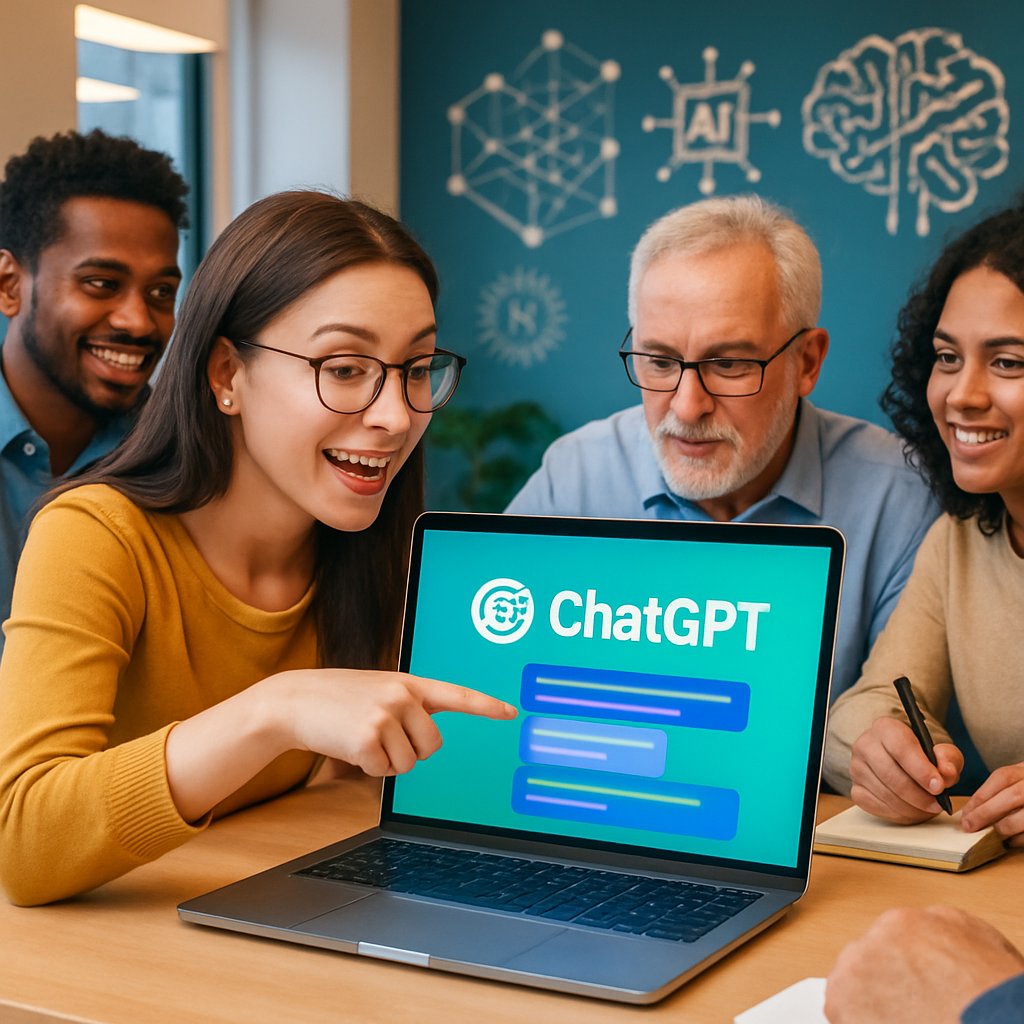ChatGPT and You: Unlocking Conversational AI for Savvy Information Seekers
Navigating the world of conversational AI can feel like wandering through a labyrinth—especially with tools like ChatGPT. Whether you’re curious about climate change or looking for health advice, these AI chatbots are becoming go-to resources for information. However, recent research reveals some intriguing insights into how we interact with these technologies, shedding light on our usage patterns and the AI's response styles. So, let’s dive into this engaging conversation about user prompting strategies and how ChatGPT adapts to our queries!
What’s All the Buzz About?
A recent study involving 937 U.S. adults explored how users initiate conversations with ChatGPT and how the AI tailors its responses. The results painted a picture of both promising technological advances and potential pitfalls, particularly regarding who gets the most out of these tools.
But why does this matter? As society increasingly relies on AI for information—often more than traditional methods like Google—it’s crucial to understand how effectively we’re using these tools and what we can do to enhance our interactions.
The Role of User Prompting Strategies
What the Heck Are Prompting Strategies?
Think of prompting strategies as the GPS guiding your car. Just like you need clear directions to arrive at your destination, AI needs well-structured questions to provide accurate and relevant answers.
In this study, researchers identified several prompting strategies, including:
- Asking ChatGPT to adopt a persona (like a medical expert for health-related questions).
- Requesting step-by-step reasoning (great for complex topics).
- Providing context (painting a picture for the AI about your specific inquiry).
Who Uses These Strategies?
Surprisingly, only about 19.1% of users relied on these advanced prompting strategies! These users were primarily more educated and leaned towards the Democratic side of the political spectrum, indicating a “digital divide.” In simpler terms, not everyone knows how to use these tools effectively, which raises questions about accessibility and how we can promote better AI literacy across the board.
The Big Picture
Why does this matter? It suggests that while some folks are getting the most out of ChatGPT, many are missing out simply because they don’t know how to ask the right questions. If you’re one of those people, don’t sweat it. There are plenty of ways to improve your prompting game!
ChatGPT's Response Styles: What’s the Difference?
Just like each of us has a unique way of communicating, so does ChatGPT. The AI responds differently depending on the context of the conversation and the prompts it receives.
Context Matters
In the study, ChatGPT adapted its communication styles based on whether users asked about controversial topics (like immigration) or non-controversial topics (such as artificial sweeteners). Here’s what they found:
- Controversial Topics: Responses often had more cognitive complexity, included external references, and featured action-oriented language. This means the AI dives deeper into responses when topics are sensitive or polarizing.
- Non-controversial Topics: Responses were more straightforward and less complex, showing that the AI can adjust its style to fit the situation.
Understanding Communication Styles
People appreciate different types of communication. Some folks prefer simple, to-the-point answers, while others enjoy deeper, more nuanced discussions. This evidence leads us to consider how to tweak our own questioning styles for better engagement.
For instance:
- If you have a nuanced question, don’t shy away from asking for detailed analysis or references.
- If you’re just looking for quick facts, keep your prompts short and simple.
The Impact of Cognitive Complexity
Now, let’s talk about something called cognitive complexity. This term refers to how well information is organized and presented. Interestingly, while users perceived more cognitively complex responses positively, these same users found those responses less favorable overall!
What Does This Mean for You?
It suggests that while you might appreciate a finely crafted argument or a deeply researched answer, you may also find it overwhelming or less likable. So, when engaging with ChatGPT, aim for a balance:
- Use targeted strategies (like specifying a persona or asking for bullet points) when a straightforward answer would suffice.
- Request elaboration only when you're comfortable diving deeper into complex topics.
Real-World Applications: Making the Most of AI
So, how do we leverage this information for real-world interactions? Here are a few practical tips to enhance your experience with ChatGPT or any conversational AI:
1. Craft Your Prompts
- Want engaging conversations? Be specific and clear in your requests. For example, if you're curious about public health, ask ChatGPT to present information from a healthcare professional’s perspective.
2. Request Actionable Insights
- Don’t be afraid to ask for advice or next steps. If asking about climate change impacts, you might say, “What can my community do to address rising temperatures?”
3. Utilize Contextual Information
- Provide background if your question pertains to current events or specific scenarios. Instead of saying, "Tell me about microplastics," try, "What should I know about microplastics concerning recent environmental reports?"
4. Be Open to Learning
- If you find a response challenging, embrace it! Complex answers can expand your perspective on a topic—even if it means stepping out of your comfort zone.
Key Takeaways
Prompting Strategies Matter: Only a small portion of users employ advanced strategies, revealing gaps in AI literacy.
Context Drives AI Responses: ChatGPT tailors its communication styles based on whether a topic is controversial or not, influencing the quality of responses.
Cognitive Complexity is a Double-Edged Sword: While complex answers might be enriching, they can also lead to less favorable perceptions of the AI.
Become a Savvy User: Benefit from ChatGPT by crafting well-structured prompts. Specificity and context can enhance the quality of your interactions.
Leveraging these tactics will not only improve your interaction with ChatGPT but might just make your quest for knowledge a breeze! Armed with this knowledge, you're ready to unlock the full potential of conversational AI and engage in dynamic, informative discussions. Happy prompting!

